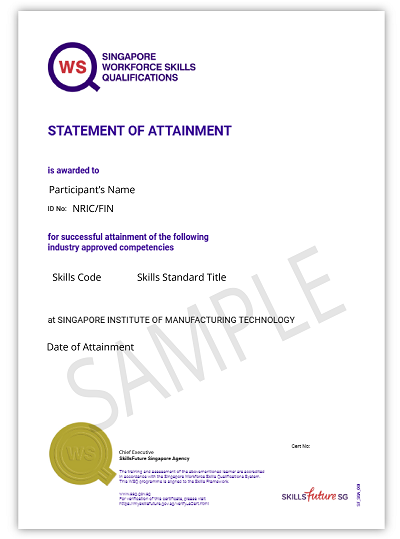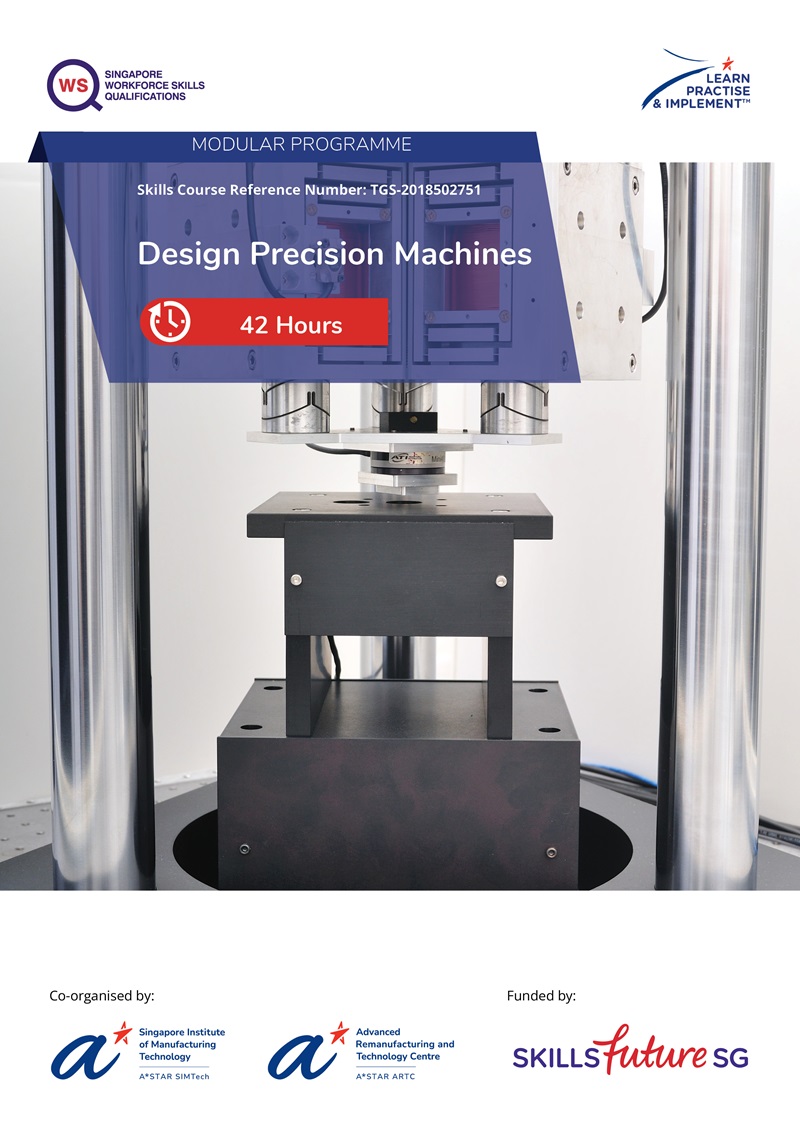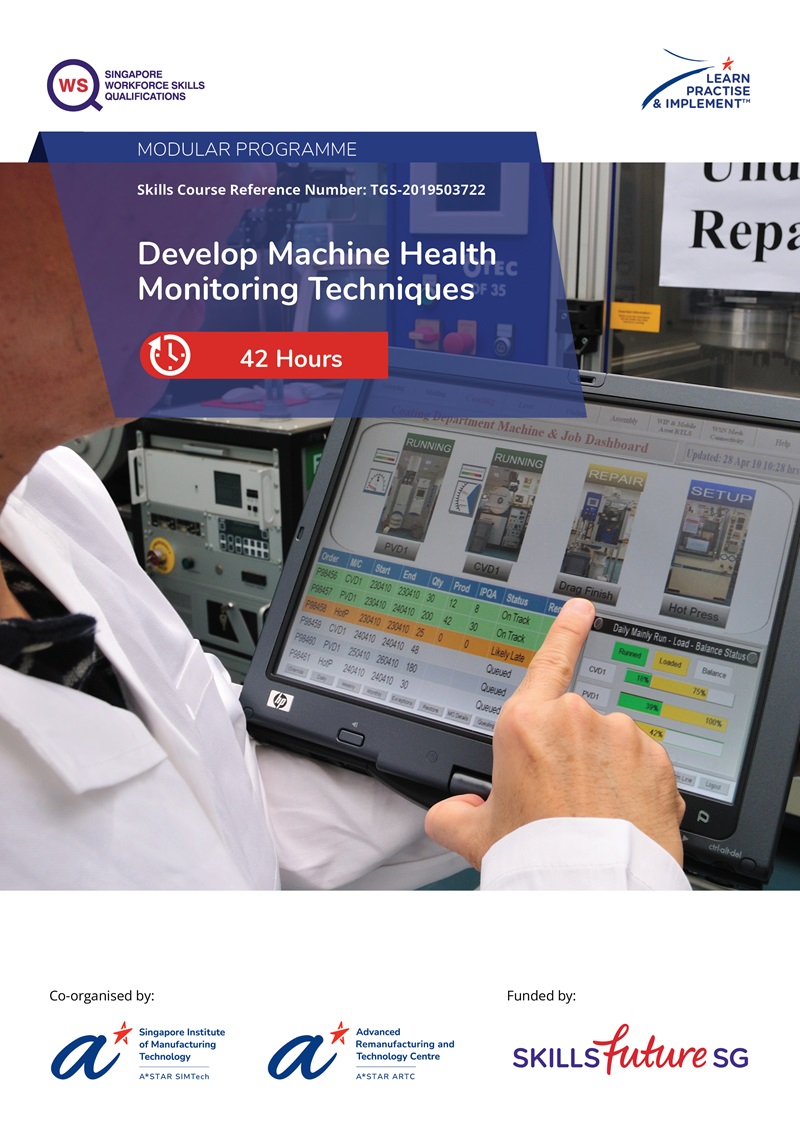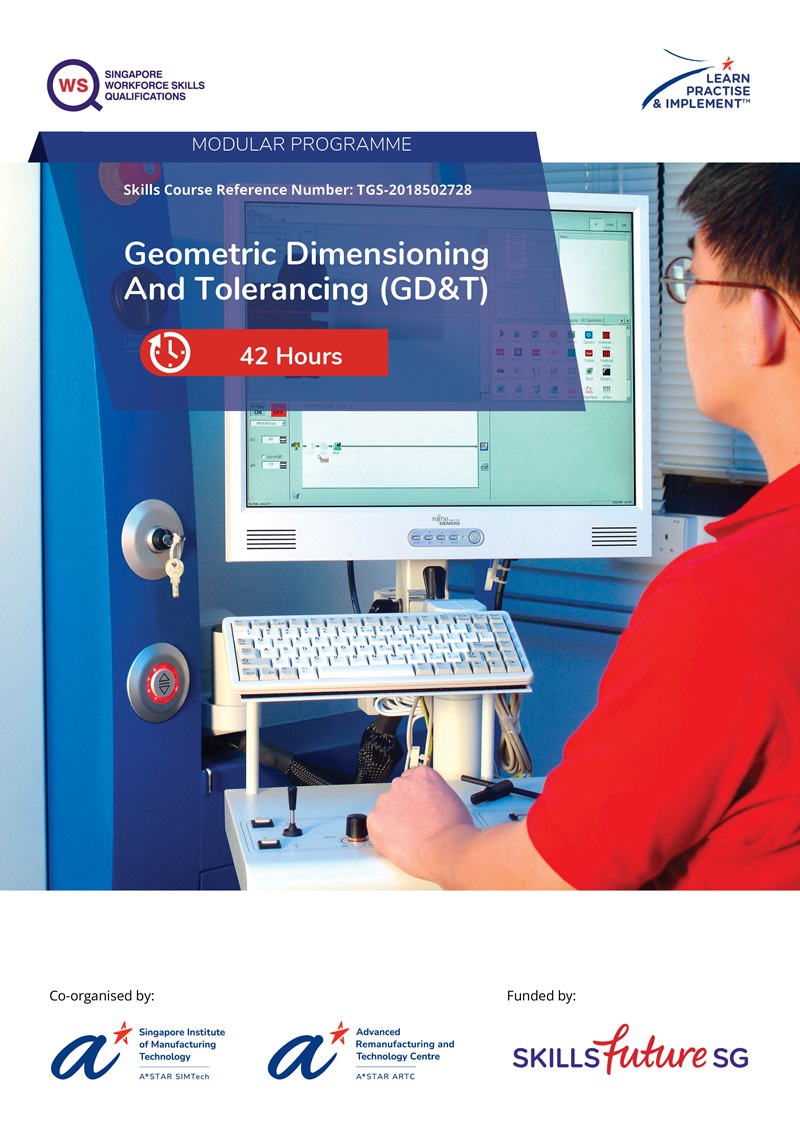Modular Programmes (By Specialisation):
Mechatronics
Introduction
The Workforce Skills Qualifications (WSQ) Modular Programmes in Mechatronics are a collaborative initiative between the Singapore Institute of Manufacturing Technology (SIMTech) and SkillsFuture Singapore (SSG).
These courses aim to equip participants with fundamental skills and capabilities in applying multidisciplinary and integrated approaches to develop high-value industrial equipment and products, such as precision machining tools, semiconductor equipment, and measurement and optical instruments.
Why These Courses
The courses are delivered through a combination of lectures, hands-on practical training sessions, and case studies led by SIMTech researchers who have extensive industrial experience. Participants will have unique opportunities to learn and apply competencies that enhance the accuracy, throughput, and effectiveness of precision manufacturing systems.
Industry Relevance
The courses are designed for engineers, supervisors, managers, researchers, and technicians in the precision engineering, aerospace, optics, and semiconductor industries. They are highly suitable for individuals involved in the design, servicing, purchasing, and supply of high-precision equipment and machine tools.
List of Modules
Registration
- Please register for this course through our online form: Course Registration Form for Public Classes.
- For the first question, please select "Modular Programmes (Standalone Modules)".
- Applicants will be placed on our waiting list if the course does not have an upcoming scheduled intake.
- When the next intake is confirmed, a confirmation email with payment information will be sent to applicants to finalise their participation.
Schedules
| Modules | Skills Course Code Reference | Next Intake(s)' Training Period (Click on the dates to view their schedules) | Registration Status |
Mech M1:
| TGS-2018502751 |  3 Mar 2026 - 21 Apr 2026 3 Mar 2026 - 21 Apr 2026 | The Mar 2026 intake is postponed. We will publish a new schedule soon. |
Mech M2:
| TGS-2019503722 | The schedule for the next intake is still in the planning stage. | |
Mech M3:
| TGS-2018502728 | The schedule for the next intake is still in the planning stage. |
Note: A*STAR SIMTech and A*STAR ARTC reserve the right to change the class/schedule/course fee or any details about the course without prior notice to the participants.
Announcement:
- From 1 Oct 2023, attendance-taking for SkillsFuture Singapore (SSG)'s funded courses must be done digitally via the Singpass App. More information may be viewed here.
- Participants will be provided with digital course materials when attending our courses. Please note that printed copies will not be available.
 : Full day
: Full day : Morning
: Morning : Afternoon
: Afternoon : Evening
: EveningQuick Link
- View the full list of modular programmes offered by A*STAR SIMTech and A*STAR ARTC.
A*STAR celebrates International Women's Day

From groundbreaking discoveries to cutting-edge research, our researchers are empowering the next generation of female science, technology, engineering and mathematics (STEM) leaders.
Get inspired by our #WomeninSTEM
.png?sfvrsn=843a4005_8)





